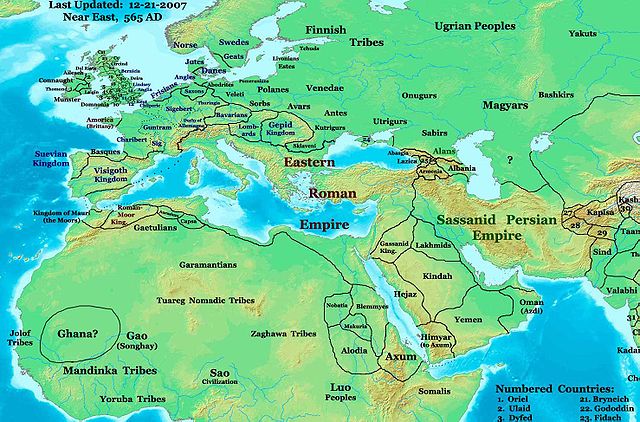The Banu Kalb was an Arab tribe which mainly dwelt in the desert and steppe of northwestern Arabia and central Syria. It was involved in the tribal politics of the Byzantine Empire's eastern frontiers, possibly as early as the 4th century. By the 6th century, the Kalb had largely adopted Christianity and came under the authority of the Ghassanids, leaders of the Byzantines' Arab allies. During the lifetime of the Islamic prophet Muhammad, a few of his close companions were Kalbites, most prominently Zayd ibn Haritha and Dihya, but the bulk of the tribe remained Christian at the time of Muhammad's death in 632. They began converting in large numbers when the Muslims made significant progress in the conquest of Byzantine Syria, in which the Kalb stayed neutral. As a massive nomadic tribe with considerable military experience, the Kalb was sought as a key ally by the Muslim state. The leading clans of the Kalb forged marital ties with the Umayyad family, and the tribe became the military foundation of the Syria-based Umayyad Caliphate (661–750) from the reign of Mu'awiya I to the early reign of Abd al-Malik.

The Kalb's oldest-known dwelling areas were around Dumat al-Jandal in northwestern Arabia.
Ruins of Palmyra, a principal base of the Kalb between the mid-7th and mid-11th centuries
A Kalbite emir was the original founder of the fortress of Salkhad in the Hauran.
The Ghassanids, also called the Jafnids, were an Arab tribe which founded a kingdom which was in place from the third century to the seventh century in the area of the Levant and northern Arabia. They emigrated from South Arabia in the early third century to the Levant. Some merged with Hellenized Christian communities, converting to Christianity in the first few centuries, while others may have already been Christians before emigrating north to escape religious persecution.
Near East in 565, showing the Ghassanids and their neighbors.




